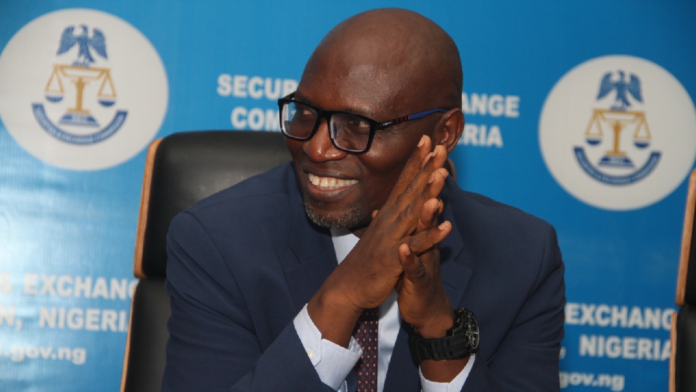The Director General of the Securities and Exchange Commission (SEC), Emomotimi Agama, has highlighted the importance of leveraging ongoing bank recapitalization and diversifying the economy from oil to achieve Nigeria’s trillion-dollar economy target.
In a statement released on Tuesday, August 7, 2024, the commission stressed the need for the nation to invest in infrastructure, human capital and innovation.
Agama emphasised the importance of enhancing the business environment, reducing regulatory hurdles, promoting financial inclusion, and improving access to credit for SMEs and individuals.
He said, “Bank recapitalization refers to the process of increasing a bank’s capital to meet regulatory requirements, improve financial stability, and enhance lending capacity.
“Banking recapitalization can indeed play a significant role in catalyzing a trillion-dollar economy through the capital market.
“The capital market plays a crucial role in this process by providing banks with access to various financing options, such as equity financing.”
He said that banks can issue new shares to raise capital from investors and on debt financing the financial institutions can issue bonds or other debt securities to raise capital from investors.
He added, “Recapitalization through the capital market can help banks meet regulatory capital requirements, improve capital adequacy ratios, increase lending capacity, enhance financial stability, restore investor confidence, enhanced investor confidence and better risk management.”
The SEC DG explained that increased lending to key sectors such as agriculture, manufacturing, and infrastructure would drive economic growth, enhance banks’ capacity to underwrite large transactions, support major projects and industries, and attract foreign investors.
These he said would in turn boost capital inflows and deepen the capital market.
According to Agama, recapitalization could also encourage the listing of banks and other companies on the Nigerian Exchange Limited (NGX), increasing market capitalization and fostering a stable financial system, which would reduce systemic risk and promote economic stability.
He noted that the Nigerian Exchange platform, designed to streamline public offerings and rights issues, is a viable channel for boosting investments and would assist in achieving a stronger economy.
Agama also acknowledged that recapitalization could present challenges, including share price dilution, increased debt servicing, and regulatory hurdles, among others



